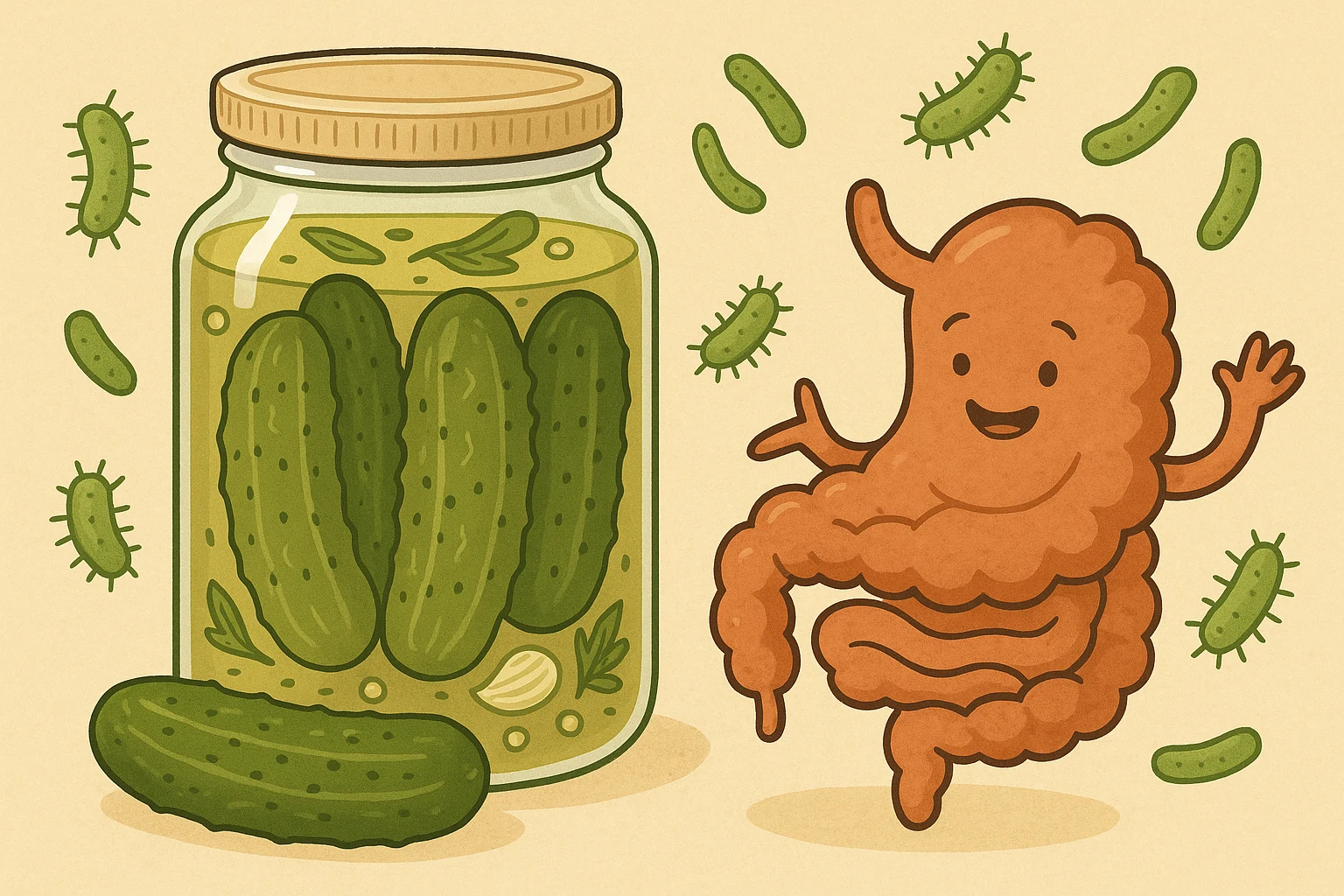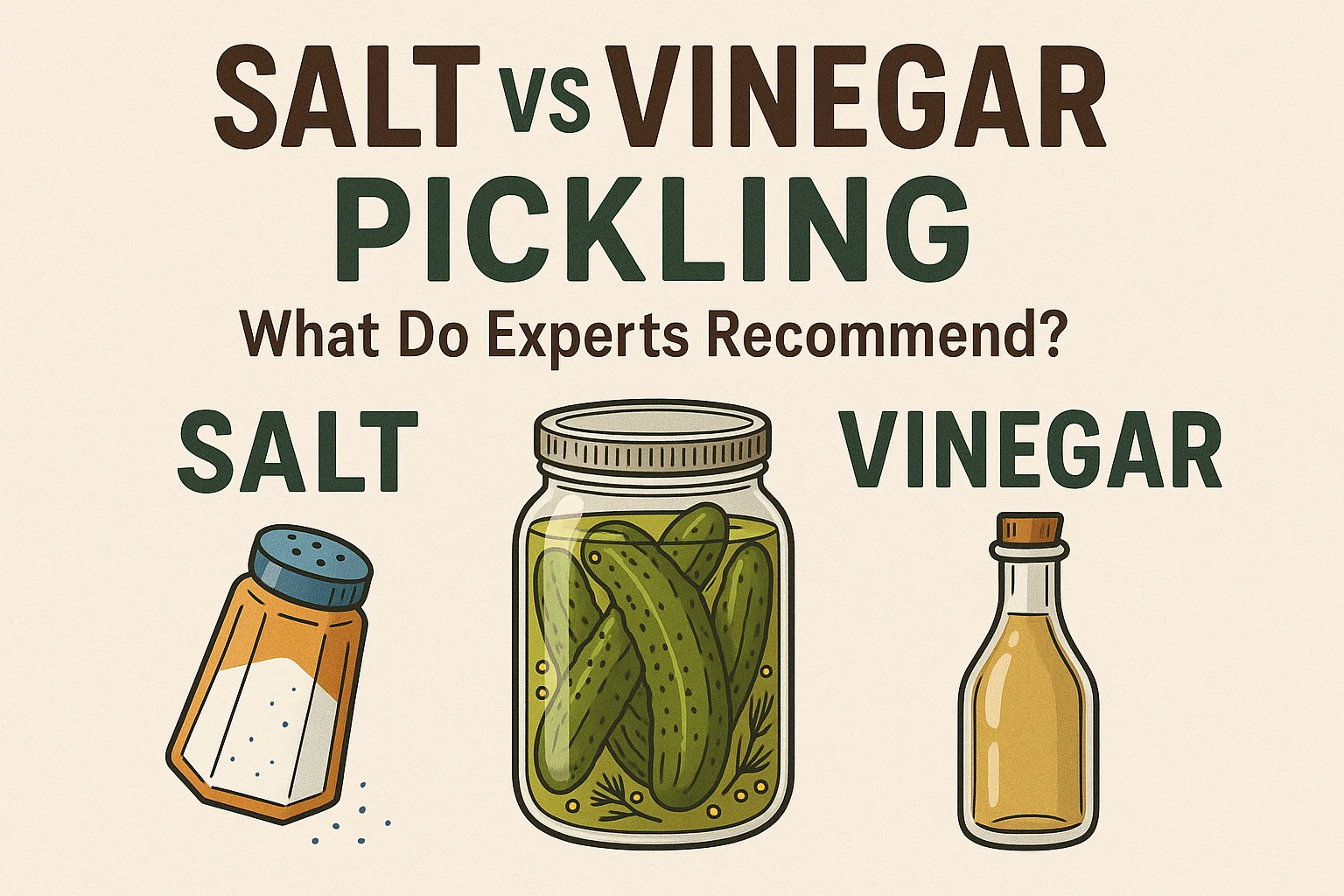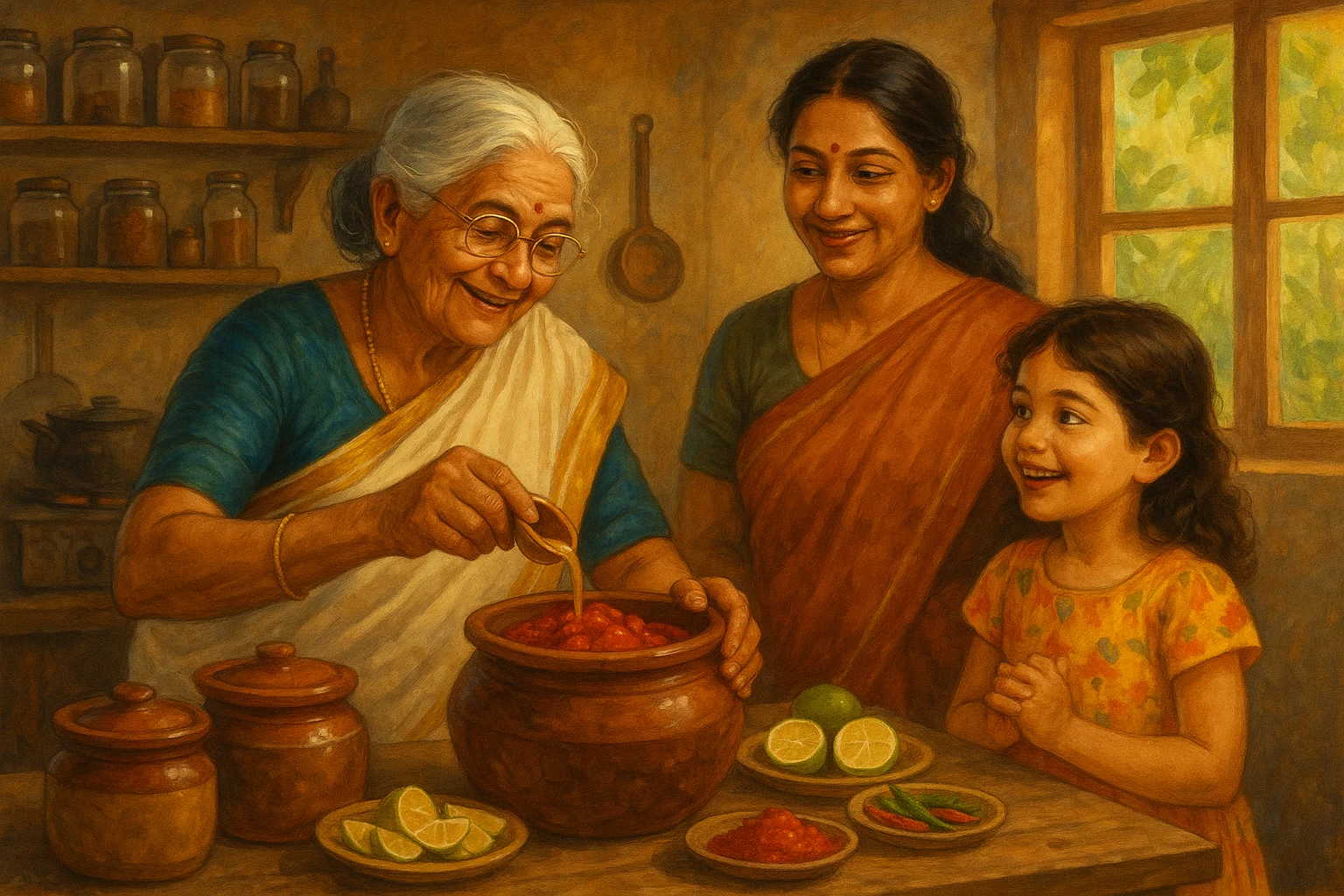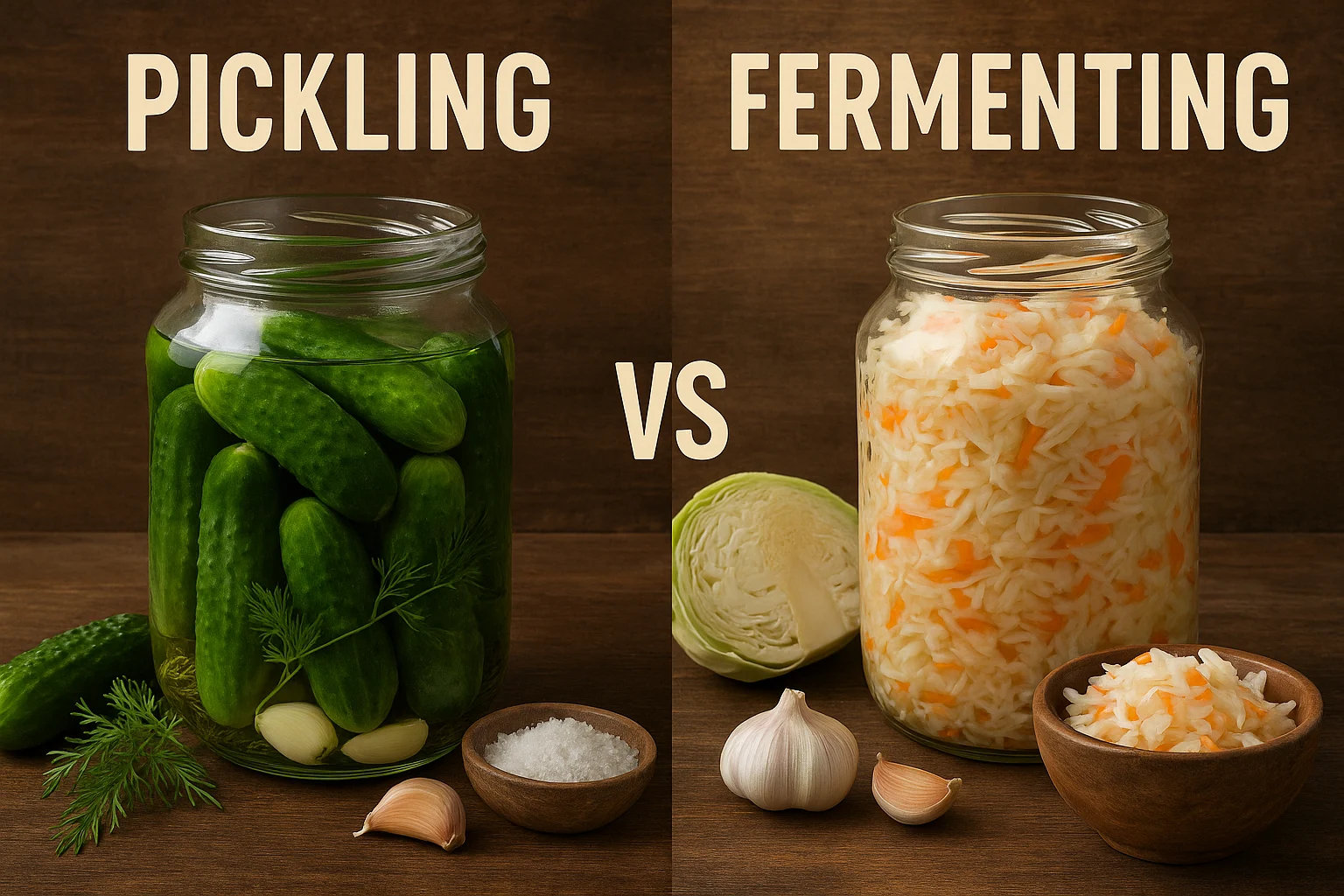Pickles & Probiotics: How Fermented Pickles Help Your Gut

Gut health matters more than we often realize. It affects how we digest food, how often we get sick, and even how we feel. One way to take care of your gut is by adding more probiotics to your meals. These helpful bacteria keep things running smoothly inside. While people often reach for supplements, fermented pickles are a simple and tasty way to get them. Moreover, yes, they do more than just add crunch to your plate.
What Are Probiotics and Why Does Your Gut Love Them?
Probiotics are living organisms which help the body, and in particular, the digestive system. They maintain harmony in your gut microbiome and they make it easier to digest food and get nutrients. There are also outcomes in helping the body to resist infection through their assistance to the immune function in doing its duty of resisting infection.
You have probably heard about Lactobacillus or Bifidobacteria, these are the ones, which appear in products of fermentation. They also determine mood, a fact that can be attributed to the connection between your brain and your gut.
Not All Pickles Are Created Equal: The Fermentation Factor
Not all pickles are made in the same way, because many pickles on grocery shelves are packed in vinegar, which gives flavour but it kills off any natural bacteria. They last longer but will not do anything for your gut.
If you want the benefits of probiotics, look for pickles that are fermented in salt brine, not vinegar. These go through a natural process that lets good bacteria grow. They should say, “Live cultures” or “unpasteurized” on the label and are usually found in the fridge section. Steer clear of added sugars or shelf-stable jars if you are looking for the real deal.
The Health Benefits of Fermented Pickles beyond Probiotics
Pickles made the traditional way are not just good for your gut; they are full of other nutrients too. Fermentation makes it easier for your body to soak up vitamins and minerals. It also reduces anti-nutrients that block absorption.
You will find helpful antioxidants like flavonoids and phenols, which protect your cells and lower inflammation. Some nutrients to note:
- Vitamin K – for healthy bones
- Vitamin C – supports your immune system
- Iron, potassium, and vitamin A – boost energy and help with hydration
- Lutein and Zeaxanthin – support eye health
Moreover, in fermentation, compounds like alkyl catechols help strengthen your body’s natural defences too.
A World of Fermented Pickle Varieties
Fermented pickles come in many forms, depending on where you are in the world. They have been part of traditional diets for centuries. Here are a few examples:
- Sauerkraut: Shredded, fermented cabbage from Europe. Tangy, crunchy, and full of fibre.
- Kimchi: A Korean favourite made with cabbage, radish, and spice. Great for digestion.
- Indian Pickles (Achaar): Often made with mango or lime, packed with spices like turmeric, and naturally fermented.
- Dill Pickles: Classic cucumbers in salt brine. When unpasteurized, they deliver probiotics too.
Other options include tempeh (fermented soybean, high protein), miso (Japanese fermented soybean paste), natto (fermented soybean, rich in vitamin K2), and kombucha (fermented tea) -each one adding flavour and variety while supporting gut health in its own way.
Making Your Own Probiotic Pickles & Important Considerations
Do you want to try making your own? It is easier than it sounds. All you need is a clean jar, fresh veggies, salt, and water. No vinegar and preservatives free.
Here is a quick DIY recipe for how-to make homemade pickle.
- Cut your vegetables -cucumber, carrot, or radish work well.
- Pack them into a clean jar.
- Mix salt and water (2 to 3% salt solution) and pour it in.
- Make sure the vegetables are fully covered.
- Leave it to ferment at room temperature for about a week. Then move it to the fridge.
Homemade pickles are fresh, natural, and full of live bacteria. Just do not overdo it, salt content simply can add up the taste and enjoy them in small amounts.
In Ayurveda perspective, fermented foods can help spark digestive fire (agni) and support overall balance when used wisely. They are often recommended in moderation, depending on your body type and season.
Conclusion
Fermented pickles are more than a tangy side dish it is a part of healthy diet. They are full of diverse probiotics, enhanced digestion, support stronger immune system and add variety to your meals. When you choose the real kind, brined, unpasteurized, and made the traditional method, you are feeding your gut with something it actually needs. Add a few to your plate, or make a batch at home. Either way, your gut will thank you.
For traditional Kerala pickles made the right way, explore Vebka Foods.




